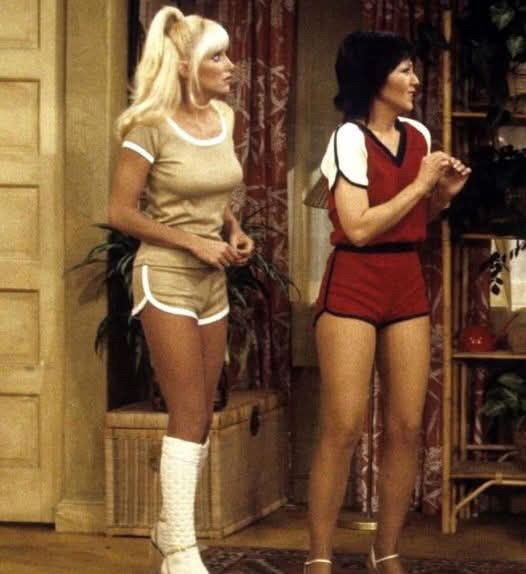Though decades have passed since Three’s Company first aired, its laughter and charm remain timeless. With unforgettable characters and comedic misunderstandings, the beloved sitcom redefined television. Now, Joyce DeWitt shares what made the show a lasting treasure.
From the hilarious antics of three single roommates to the unforgettable performances of John Ritter and Suzanne Somers, Three’s Company became a cultural phenomenon. Even 40 years after its finale on ABC, its humor and warmth continue to resonate. Watching its classic opening sequence, with glimpses of the Santa Monica Pier, is a reminder of how much has changed since those days.
Sadly, both John Ritter and Suzanne Somers are no longer with us, their lives cut tragically short. Yet, keeping the spirit of Three’s Company alive is Joyce DeWitt, now 75, who fondly reflects on the show’s impact.
“The most dear, precious, tender—and utterly unexpected—experiences that have come from working on Three’s Company are the many adults who have told me that the show was a safe haven they could count on during their teen years—for some, the only safe haven,” DeWitt told US Weekly.

Starring as Janet Wood alongside Ritter and Somers, DeWitt became a household name and a daily source of joy for millions. She appeared in 171 episodes between 1976 and 1984.
“It was such a gift. I mean, it was iconic. But who would have thought it?” she told The Spec. “All we were trying to do was make people laugh. Looking back, the show was really a modern version of a 16th-century farce—silliness running wild. We tackled serious issues at times, but always beneath the surface.”
John Ritter often said their goal was not just to make people laugh, but to have them fall off the couch laughing. Yet, as DeWitt explains, the real magic of the show lay in the deep friendship and love between its characters. That connection kept audiences coming back.

A Rift That Lasted Decades
Beyond the laughter, however, tensions brewed behind the scenes. While Somers became known as “the dumbest blonde in America,” her push for equal pay led to friction. She demanded a 500% salary increase—from $30,000 to $150,000 per episode—straining her relationship with DeWitt and the rest of the cast.
Somers was eventually fired, forced to finish the season under unusual circumstances. She filmed her scenes in isolation, speaking to her castmates only via scripted phone calls, escorted by security. This rift grew into a 30-year silence between Somers and DeWitt.

“They painted me as if I was trying to ruin the show,” Somers said in 2020. “So, I never talked to anybody on that show ever again. Ever again.”
Though some speculated that DeWitt played a role in Somers’ departure, it was ultimately salary disputes that drove them apart. Their differing priorities—Somers, a single mother focused on financial security, and DeWitt, deeply committed to her craft—added to the divide.

“We had very different approaches to our careers,” DeWitt later reflected. “We had very different needs. I didn’t have a child to support, and I didn’t have a business mind, so I didn’t fully understand someone who did.”
A Bittersweet Reconciliation
After three decades of silence, the two finally reunited in 2012 on Somers’ talk show, Breaking Through. Their emotional embrace and heartfelt conversation marked the end of their long-standing feud.

“You went up against ruthlessness, and it came down on you,” DeWitt told Somers. “But what you’ve gone on to accomplish is immeasurable.”
This reunion was a testament to healing and forgiveness. The two remained close until Somers’ passing in 2023 after a battle with breast cancer. DeWitt, reflecting on her late co-stars, described Somers as “absolutely wonderful” and called Ritter “a true gift.”

A Legacy That Lives On
Looking back at behind-the-scenes photos from Three’s Company, it’s easy to see the camaraderie that made the show special. DeWitt and Somers, both pioneering women in a male-dominated industry, played as vital a role in its success as Ritter. Their early years were filled with laughter, friendship, and a shared love for their craft.
Despite its behind-the-scenes struggles, Three’s Company remains a cherished part of television history. Its enduring appeal lies not just in its comedy, but in the bonds it created—both on and off-screen.
